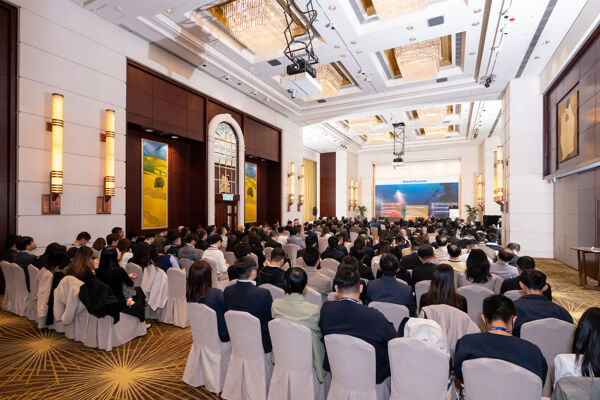
Key points
- NEC users should watch out for illegal or impossible requirements in the scope or contract terms.
- NEC contracts provide a mechanism for resolving such requirements in the scope, but in extreme circumstances the contract may still be unenforceable.
- Standard NEC contracts reverse the common law approach to buildability risk, but this may be affected by Z clauses.
Parties enter into a contract with the expectation that the contract will be performed in accordance with its terms. This confidence emanates principally from the obligations which arise from the agreement itself, and which are legally enforceable by virtue of the contract law.
However, there may be circumstances where compliant performance would be illegal or impossible. This article explores what illegal or impossible requirements are and explains what remedies are available.
What is an illegal requirement?
According to the Oxford Dictionary of Law, an illegal requirement is one that is prohibited by statute or is illegal at common law on the grounds of public policy. In design and construction, illegality can arise in different ways. Examples include failure to comply with health and safety legislation, constructing a building without planning permission, or a specification that does not meet the requirements of the building regulations. Activities on site may also be deemed illegal if they infringe the legal rights of others.
An illegal requirement may render the entire contract unenforceable (Patel v. Mirza [2016] UKSC 42). However, it may be possible to preserve the contract by cutting out the illegal requirements from the legal parts (Bailey, 2020).
In NEC, the law of the contract is identified in contract data part one and is the law which governs the contract between the parties (for example see clause 12.2 in the NEC4 Engineering and Construction Contract (ECC)). The NEC4 ECC user guide (volume 2) recommends the place of jurisdiction should be stated as well as the law of the contract as it is possible for the law in one country to be applied in a court of another country.
NEC contracts also refer to the ‘applicable law’ (for example NEC4 ECC clauses 11.2(6), 21.2, 23.1, 41.1 and 83.3). Applicable law is not defined in the contract but is likely to have a wider meaning than the ‘law of the contract’, particularly in international contracts. There are no express terms in the contract specifically requiring either party to comply with the law. NEC contract drafters considered this unnecessary, and the approach is consistent with the drafting philosophy of simplicity.
A change in the law occurring after parties have entered a contract may mean performance in accordance with the original contract would be illegal. The risk of changes in the law depends on the terms of the contract. In the long-form versions of NEC4 contracts, if secondary Option X2 is included and a change in the law of the county where the site is located occurs after the contract date, the matter is dealt with as a compensation event.
What is an impossible requirement?
Generally, the position in law is that there is no implied warranty from the client that its design is buildable (Thorn v. London Corporation (1876) - 1 App Cas 120). In the absence of a contractual definition, the matter of what is ‘impossible’ is left open to interpretation.
However, the law has taken a pragmatic approach by not accepting arguments of absolute impossibility and allowing consideration to what is practical in a commercial sense (Turiff v. Welsh National Water Development Authority (1979) Construction Law Yearbook 1994).
In NEC4 ECC contracts, clause 17.2 (discussed below) has the effect of reversing the common law stance on buildability where an instructed change to the scope gives rise to a compensation event.
Questions of impossibility may also arise regarding unforeseen ground conditions. Such matters are dealt with as ‘physical conditions’ in NEC4 ECC (clauses 60.1(12) and 60.2). Ultimately, which party takes the risk on buildability depends on the conditions of contract and users should be wary of Z clauses which may alter this risk.
Illegal or impossible requirements in the scope
NEC4 ECC clause 17.2, under the marginal heading of ‘Requirements for instructions’, sets out the procedure for resolving illegal or impossible requirements included in the scope. Similar clauses are found in all long-form versions of NEC contracts, but not the short forms.
On becoming aware of an illegal or impossible requirement in the scope, the project manager or contractor must notify the other of the matter. If the project manager decides the scope does include an illegal or impossible requirement, the project manager is required to give an instruction to change the scope appropriately. Clause 17.2 does not state a timescale for the project manager’s decision or instruction, so the period for reply as stated in contract data part one would probably apply (clause 13.3).
A project manager’s instruction which changes the scope is normally a compensation event (clause 60.1(1)). However, this may not be the case when the contractor is responsible for the design. NEC users should also be aware that the rules of assessment of a compensation event (clause 63.10) do not apply when the scope has been changed to resolve an impossible or illegal requirement.
The clause 17.2 procedure is limited to dealing with illegal or impossible requirements in the scope and, in any event, the project manager’s authority to instruct change is limited to the scope (clause 14.3). Clause 17.2 presupposes that an impossible requirement can be resolved by changing the scope so the contract can still be performed and, as a consequence, is not regarded as a frustration clause (Eggleston, 2019). It also assumes an illegal requirement can be removed from the scope without rendering the entire contract unenforceable.
Illegal or impossible requirements in the contract terms
If for some reason there is an illegal or impossible requirement in the contract terms, these can only be changed by agreement between the client and the contractor (for example NEC4 ECC clause 12.3). They only take effect when confirmed in writing and signed by the parties.
Conclusions and recommendations
Matters of illegality and impossibility are complex issues and, in extreme cases, may lead to a contract being unenforceable.
The NEC4 long forms provide a specific mechanism for the project manager to resolve illegal or impossible requirements included in the scope. A change to the scope instructed by the project manager to resolve an illegal or impossible requirement is normally a compensation event and needs careful management.
For an illegal or impossible requirement in the contract terms, these can only be changed through agreement by both parties.
In both cases, some knowledge and understanding of the law of the contract and applicable law is necessary. Clients, contractors and project managers may need to seek legal advice to assist them when making decisions.
References
Bailey J (2020) Construction Law Vol. 1 3rd ed., London Publishing Partnership, London, par.2.172.
Eggleston B (2019) The NEC4 Engineering and Construction Contract: A Commentary, Wiley-Blackwell, Oxford, p. 123.




